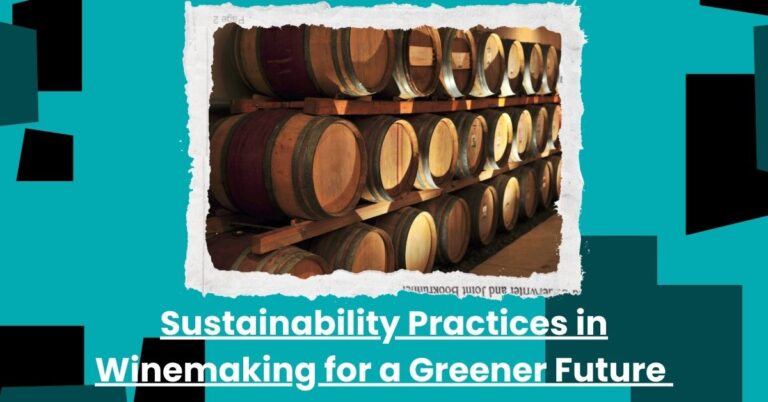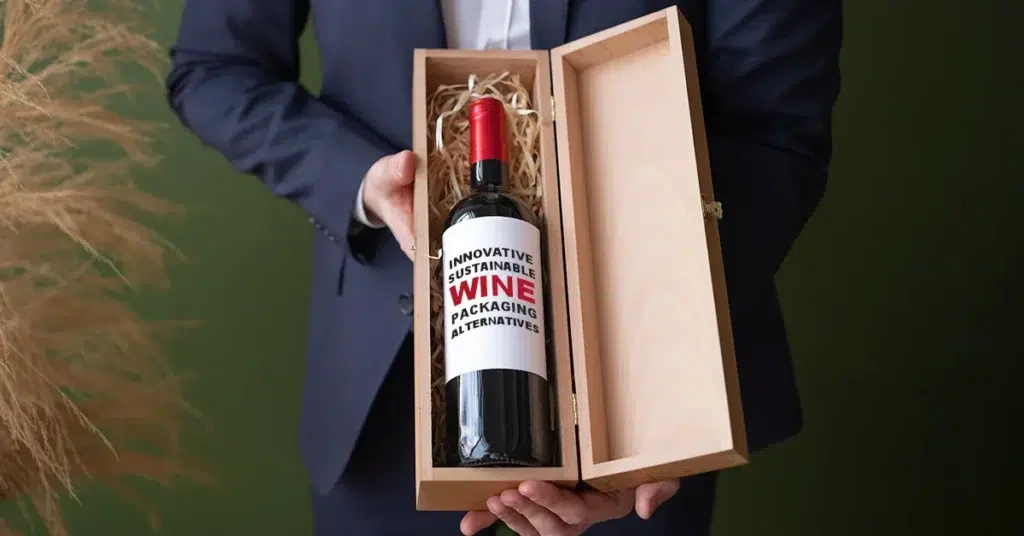
As the wine industry evolves, so does its approach to packaging. Traditional wine bottles, long seen as a symbol of quality, are now being complemented by more innovative, sustainable options. With increasing consumer demand for eco-friendly solutions and the rising awareness of environmental impact, the wine industry is looking beyond the bottle for packaging solutions that align with modern values. This article explores key innovations in wine packaging and their contribution to sustainability.
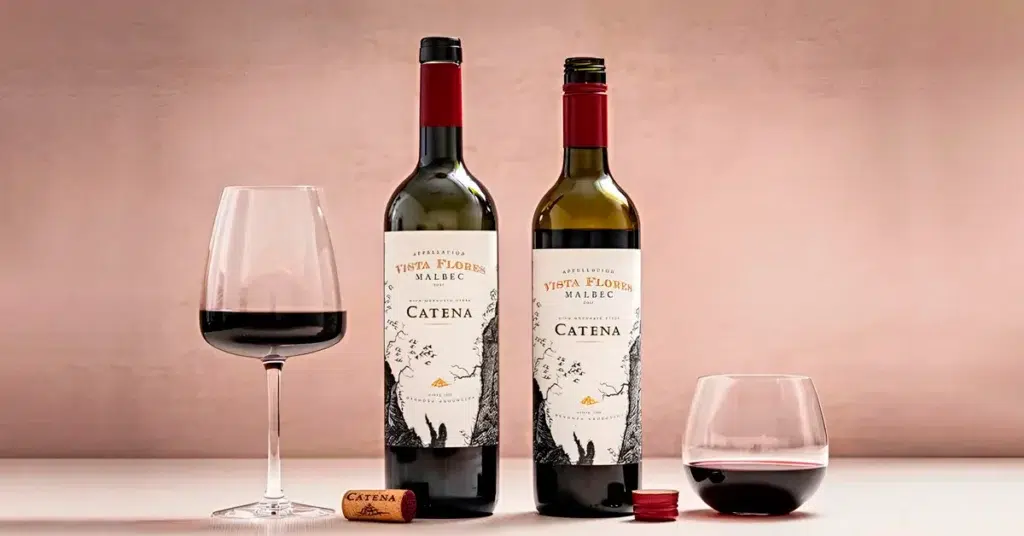
The Rise of Alternative Wine Packaging
A Shift from Tradition: Bottles vs. Modern Packaging
Wine has historically been associated with glass bottles, a packaging format steeped in tradition. However, modern consumers are seeking alternatives that are less resource-intensive. The industry is increasingly embracing innovative packaging methods that challenge the long-standing association between wine and glass.
Consumer Demand for Eco-Friendly Solutions
Consumers today are more conscious of their environmental footprint. Sustainable packaging is no longer a niche demand but a mainstream expectation. The shift in consumer behaviour is driving wineries to rethink their packaging, offering solutions that align with eco-conscious lifestyles.
Impact of Packaging on Brand Perception
Packaging is integral to a brand’s identity, especially in a competitive market like wine. Innovative and sustainable packaging solutions not only reduce environmental impact but also enhance a brand’s appeal to a growing segment of eco-aware consumers.
Concha y Toro, a leading Chilean wine producer, has introduced lightweight bottles across its range to reduce environmental impact while maintaining its reputation for quality wines. This shift from tradition exemplifies how wineries can evolve packaging without sacrificing their brand image. With consumer expectations increasingly focusing on eco-friendliness, brands like Concha y Toro demonstrate the value of balancing sustainability with maintaining a premium identity.
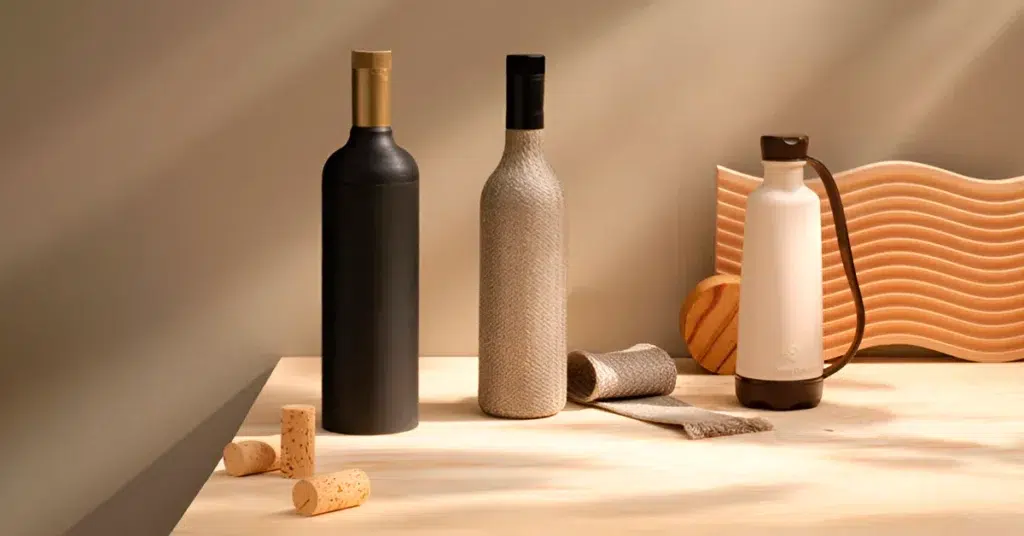
Sustainable Materials in Wine Packaging
Biodegradable and Compostable Packaging Solutions
One of the most significant innovations in wine packaging is the use of biodegradable and compostable materials. These options help reduce waste and environmental impact, offering a greener alternative to traditional glass and plastic bottles.
Recyclable Materials for Wine Bottling
Recyclable materials such as lightweight glass and recycled paperboard are gaining popularity. These materials not only lower the carbon footprint of wine packaging but also appeal to consumers who prioritise recyclability.
Plant-Based Packaging: The Future of Wine
Materials derived from plants, such as bioplastics made from sugarcane or cornstarch, offer a renewable and sustainable alternative. These innovations not only decrease reliance on fossil fuels but also create compostable packaging options that break down naturally.
Pernod Ricard has been at the forefront of sustainable packaging innovation, particularly with its Campo Viejo brand, which now offers a 100% recyclable paperboard wine bottle. By integrating biodegradable and recyclable materials into its packaging, the company not only aligns with environmental values but also reinforces its commitment to long-term sustainability. This move showcases how wineries can leverage eco-friendly materials to drive both sustainability and brand differentiation.
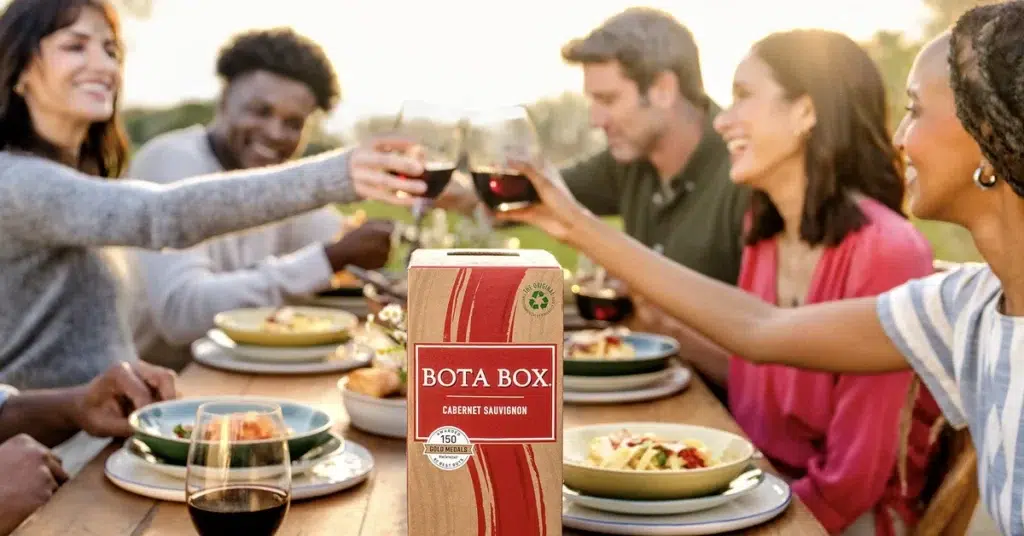
The Bag-in-Box Revolution
Bag-in-Box Packaging: A Cost-Effective Solution
Bag-in-box (BiB) packaging is not only more sustainable but also cost-effective for both producers and consumers. The lighter weight and compact form reduce shipping costs and carbon emissions, making it a smart choice for wineries looking to minimise their environmental impact.
Longer Shelf Life: Preserving Wine Quality
BiB packaging offers an extended shelf life compared to traditional bottles once opened, as the bag collapses to prevent oxidation. This ensures that the wine remains fresh for a longer period, which is particularly attractive for casual wine drinkers.
Consumer Acceptance of Bag-in-Box Wines
Once perceived as inferior, BiB wines are now being accepted by a broader audience, especially those who value sustainability. The quality of BiB wine has improved significantly, and many consumers are embracing the convenience and eco-friendly benefits.
Bota Box has popularised the bag-in-box format for premium wine, offering an eco-friendly alternative to traditional glass bottles. Their innovative packaging reduces the environmental impact associated with production and shipping, while also providing a convenient option for consumers. The success of Bota Box illustrates that sustainable solutions, such as BiB, can be both cost-effective and well-received by consumers, driving wider acceptance of alternative packaging.
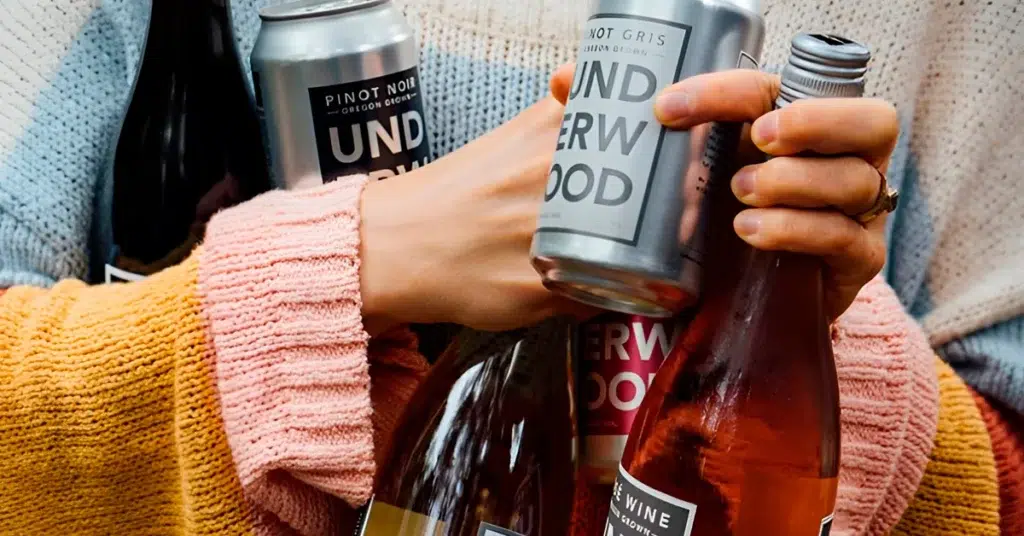
Canned Wine: Convenience Meets Sustainability
The Rise of Wine in Cans: A Trend for Millennials
Wine in cans is gaining popularity, particularly among younger generations who prioritise convenience and sustainability. The portability of canned wine makes it ideal for outdoor activities, further driving its appeal among eco-conscious consumers.
Recyclability of Aluminium Cans
Aluminium cans are highly recyclable, making them an excellent choice for sustainable wine packaging. The lightweight and easily recyclable nature of aluminium contributes to reduced energy consumption during production and transportation.
Canned Wine’s Impact on Traditional Wine Marketing
Canned wine is reshaping how wineries market their products. The casual and accessible format appeals to a broader audience, challenging the conventional notion that quality wine must come in a bottle.
Underwood Wine by Union Wine Co. has embraced canned wine as a sustainable and portable option, particularly appealing to younger, environmentally conscious consumers. Cans are highly recyclable and offer a lightweight, easily transportable solution for casual wine drinkers. By adopting canned packaging, Underwood Wine taps into the growing demand for convenience without compromising its commitment to sustainability.

Lightweight Glass Bottles and Eco-Friendly Labels
Reducing Carbon Footprint with Lightweight Glass
Lightweight glass bottles are designed to lower energy consumption in both production and transportation. By using less glass, wineries can reduce their overall carbon emissions, aligning with sustainability goals without sacrificing the premium image associated with glass bottles.
Innovative Wine Labels: Organic Inks and Recyclable Materials
Eco-friendly wine labels made from recycled materials and printed with organic inks are becoming a popular choice. These innovations contribute to the overall sustainability of the wine packaging and help brands reinforce their environmental commitments.
Sustainability as a Brand Differentiator
Brands that adopt eco-friendly packaging, including lightweight glass and sustainable labels, are able to differentiate themselves in a crowded market. Packaging sustainability not only appeals to eco-conscious consumers but also positions the brand as a leader in environmental responsibility.
Bonterra Organic Vineyards has taken significant steps in reducing the environmental impact of its packaging by adopting lightweight glass bottles and eco-friendly labels. Using soy-based inks and recycled materials, the brand ensures that every part of its packaging aligns with sustainable practices. This integration of eco-friendly materials not only reduces carbon emissions but also enhances the brand’s environmentally responsible image.
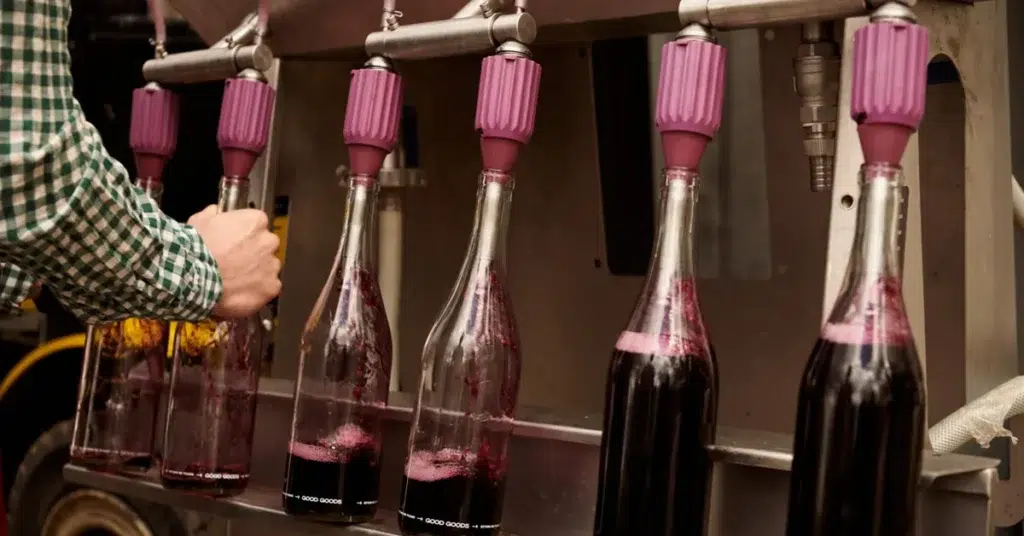
Refillable and Reusable Wine Packaging Solutions
The Return of Refillable Wine Bottles
Refillable wine bottles are making a comeback as a sustainable alternative. By encouraging consumers to return bottles for reuse, wineries can significantly reduce waste and lower their environmental impact.
Wine on Tap: Kegs for Bulk Sales
Kegs are increasingly being used in wine retail and hospitality settings as a refillable packaging option. This method drastically reduces single-use packaging waste and is particularly suited for large-volume consumers, such as restaurants and bars.
Consumer Participation in Reusable Packaging Systems
Refillable packaging systems rely on consumer participation. Wineries and retailers are incentivising customers to return bottles or participate in refill programs, fostering a circular economy within the wine industry.
Good Goods is pioneering a reusable wine bottle system that encourages consumers to return bottles for cleaning and refilling. By offering a practical, circular solution, Good Goods showcases how refillable packaging can benefit both wineries and consumers. This initiative helps reduce single-use packaging waste while fostering a sustainable connection between the brand and its eco-conscious clientele.

Sustainability in the Supply Chain: From Vineyard to Shelf
Reducing Carbon Emissions in Wine Logistics
Sustainable packaging is only one part of the puzzle. Reducing emissions throughout the supply chain, from vineyard operations to the delivery of the final product, is key to achieving comprehensive sustainability goals.
Packaging’s Role in the Circular Economy
The wine industry is increasingly adopting circular economy practices, where packaging materials are reused, recycled, or repurposed to minimise waste. Innovative packaging plays a crucial role in this shift, offering solutions that align with zero-waste goals.
Transparency and Certification in Sustainable Packaging
Transparency regarding packaging materials and sustainability certifications (such as FSC-certified paper or carbon-neutral packaging) is becoming more important. Wineries that adopt certified sustainable packaging are better positioned to gain consumer trust and loyalty.
Jackson Family Wines has seamlessly integrated sustainability into its entire supply chain, employing energy-efficient practices, lightweight bottles, and renewable energy across production. Their approach demonstrates how packaging innovation, combined with eco-friendly supply chain practices, can significantly reduce a winery’s carbon footprint. By adopting a comprehensive strategy, Jackson Family Wines leads by example, showing that sustainability is attainable at every stage of the wine production process.
Conclusion
Innovations in wine packaging are moving the industry beyond the traditional glass bottle, offering more sustainable, practical, and eco-friendly alternatives. From bag-in-box solutions to refillable kegs, these innovations reflect a growing emphasis on environmental responsibility within the wine industry. As consumers increasingly prioritise sustainability, these packaging trends are set to play a key role in shaping the future of wine.



